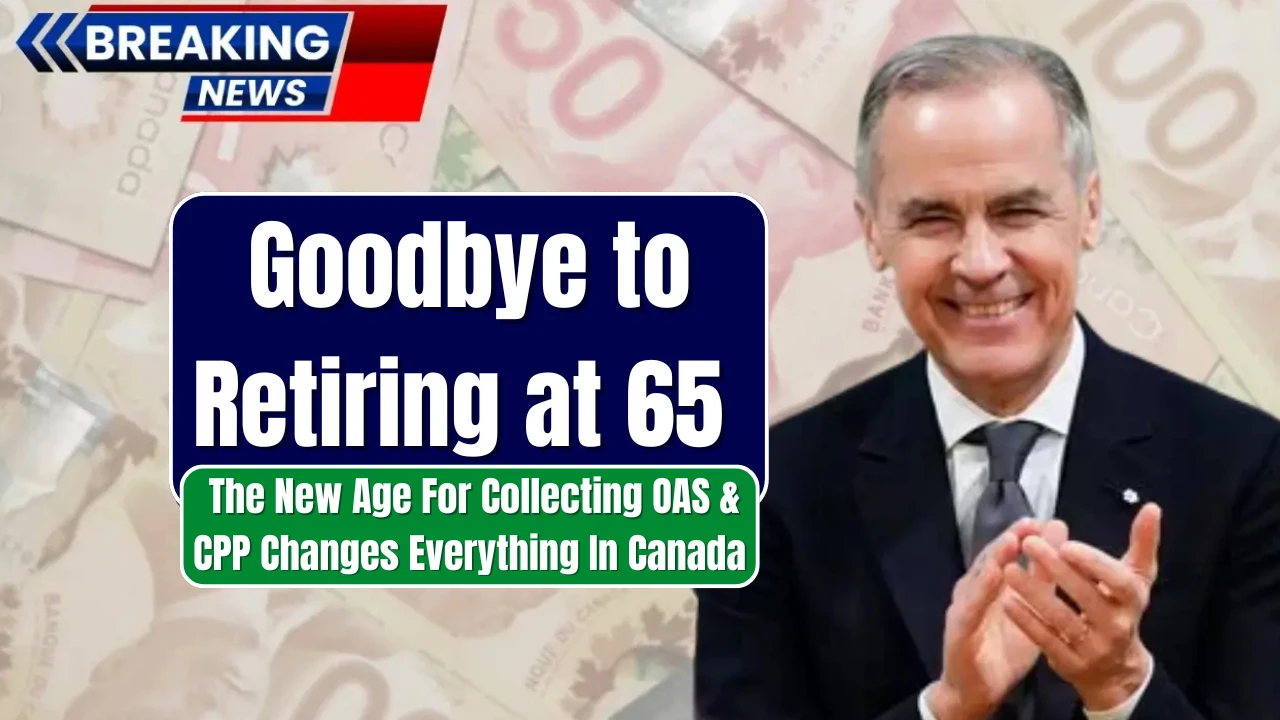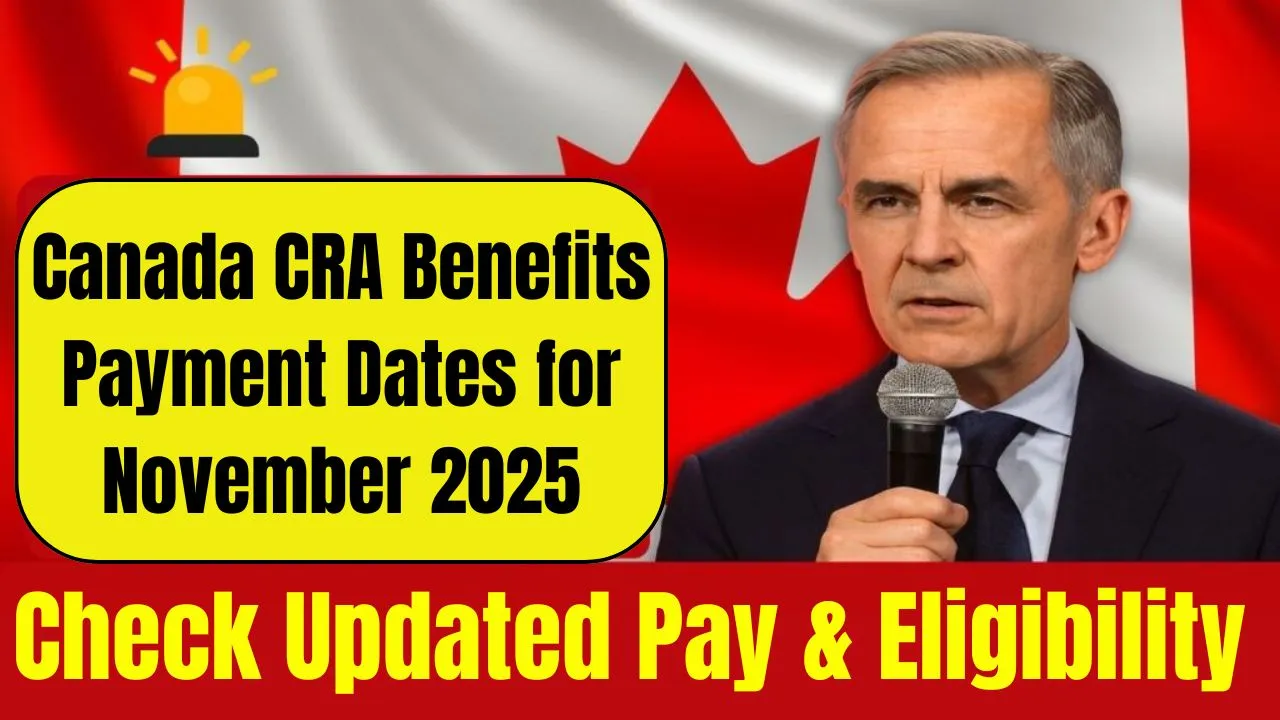For many Canadians, turning 65 has always meant the start of retirement benefits. It is the age when Old Age Security (OAS) kicks in and when many people begin collecting Canada Pension Plan (CPP) payments. For decades, this milestone shaped how people saved, budgeted, and planned for life after work. But in 2025, new conversations around retirement are raising questions: will 65 still be the age Canadians rely on?
The debate about the OAS and CPP retirement age is heating up. With growing talk of a possible shift to age 67, many seniors are worried about losing income or having to delay retirement. This article takes a closer look at what is true, what is just speculation, and what Canadians need to know as they prepare for their future.
Understanding the OAS and CPP Retirement Age
The OAS and CPP retirement age has become one of the most discussed financial topics of 2025. Some reports claim that by the end of this year, the government may raise OAS eligibility from 65 to 67. While CPP rules are not changing, delaying OAS would mean two extra years without that monthly income. This could have a major impact on low- and middle-income Canadians who rely on OAS and the Guaranteed Income Supplement (GIS) for essentials. However, it is important to remember that nothing is official yet. The CRA has not confirmed any changes, and all current rules remain in place. Canadians planning their retirement should stay informed but avoid making sudden decisions based only on rumours.
Overview of Retirement Age Rumour in Canada
| Topic | Details |
| Traditional Retirement Age | 65 years |
| Rumored Change | Raising OAS eligibility to 67 |
| Official Confirmation | None from CRA or federal government |
| CPP Flexibility | Still available between 60 and 70 |
| OAS Current Rule | Payments start at 65 |
| GIS Current Rule | Begins at 65 along with OAS |
| Affected Groups | Lower- and middle-income seniors |
| Source of Speculation | Media reports and public debate |
| CRA’s Position | No confirmed policy change |
| Advice for Seniors | Plan flexibly, follow official updates |
Canada’s Retirement Benefits Explained
Canada’s retirement income system has three pillars: CPP, OAS, and GIS. CPP is funded through contributions made during working years and offers flexibility. You can start as early as 60 or delay up to 70, with the benefit adjusted depending on when you begin. OAS is different. It is not contribution-based but rather a government-funded program that begins at age 65 for most Canadians. GIS adds extra support for low-income seniors who qualify for OAS.
Currently, OAS and GIS are fixed at 65, which is why the rumors about raising eligibility to 67 have caused so much concern. While CPP allows personal choice, OAS and GIS do not, meaning seniors have less flexibility if the age were to increase.
Where the “Retire at 67” Rumour Comes From
The idea of raising the retirement age is not new. A few years ago, the government briefly proposed increasing OAS eligibility to 67, but it was rolled back after strong public opposition. Now, speculation is back. Reports suggest that by late 2025, OAS could be delayed to 67. If that happens, seniors would lose two full years of payments, including inflation-adjusted increases during that time.
This change would hit lower-income Canadians the hardest, since many depend on OAS and GIS for their daily expenses. Even for middle-class seniors, it would mean dipping more into savings or private pensions earlier than expected.
Impact on CPP vs. OAS Recipients
One critical point is that CPP is not affected by these retirement age rumours. Canadians can still choose to claim CPP anytime between 60 and 70. If you claim early, you get smaller monthly payments. If you wait, your payments grow, sometimes by as much as 42 percent if you delay until 70.
The possible change affects OAS and GIS only. Unlike CPP, they do not have flexible start dates. If the age moves to 67, every senior who planned around 65 would need to wait, no matter their financial situation.
CRA’s Position – Fact vs. Fiction
So far, the CRA has been clear: there are no confirmed changes to the OAS and CPP retirement age. Current rules still apply, meaning:
- OAS eligibility starts at 65.
- CPP flexibility remains between 60 and 70.
- GIS is available to low-income seniors beginning at 65.
The CRA has also noted that if a policy shift were ever introduced, there would be an official announcement with a phased timeline. Canadians would not be caught off guard, and there would be time to adjust retirement plans.
What Canadian Seniors Should Do Now
While uncertainty is never easy, there is no need to panic. Here are a few steps seniors can take today:
- Stay up to date with government announcements on Canada.ca.
- Avoid misinformation from unverified social media posts.
- Build flexibility into retirement planning so you can adapt to changes.
- Explore CPP options, since delaying can increase your monthly income.
- Consider talking to a financial advisor about preparing for different retirement age scenarios.
Why the Retirement Age Debate Matters
The debate over the retirement age is about more than just numbers. For low-income seniors, delaying OAS means real hardship, as these payments cover basics like food and housing. Middle-income retirees may need to depend more on RRSPs or workplace pensions, which could reduce long-term savings.
From a government perspective, raising the retirement age could reduce pension costs in the short term. However, it might also put more pressure on healthcare and social systems if older Canadians are forced to stay in the workforce longer. With Canada’s aging population, this debate will likely continue in the years ahead.
FAQs – Goodbye to Retirement at 65
Q1: Is the retirement age in Canada officially moving to 67?
No, there is no official change. OAS eligibility is still 65.
Q2: Does this affect CPP benefits?
No, CPP remains flexible between ages 60 and 70, regardless of OAS.
Q3: Who would be most impacted if the age rises to 67?
Seniors who rely heavily on OAS and GIS would feel the biggest impact.
Q4: How will Canadians know if the change happens?
The government and CRA will make formal announcements with plenty of notice.
Q5: Should I change my retirement plans right now?
No immediate changes are necessary. It is best to stay informed and plan flexibly.
Final Thought
The discussion around the OAS and CPP retirement age is not new, but it is once again a hot topic in 2025. While the rumors about raising the age to 67 have created anxiety, there is no official confirmation yet. Canadians can still access OAS and GIS at 65, and CPP continues to provide flexible options. The best approach is to stay informed, prepare for different scenarios, and rely on official updates rather than speculation. Planning ahead today will help ensure you are ready for whatever changes may come tomorrow.





